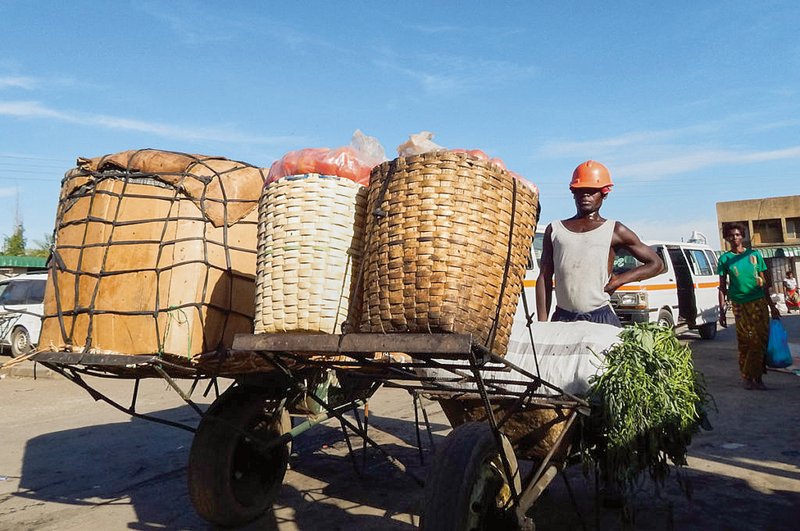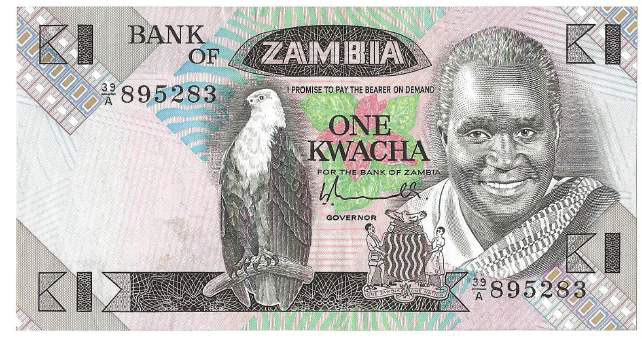In a country where nearly 80% of workers operate outside formal employment and informal businesses contribute USD 11.3 billion to the economy, Zambia's "invisible" sector is anything but small. From kantemba owners to Cab operators, this parallel economy moves billions through trust-based networks while remaining largely overlooked by policymakers.
Physicists theorise about multiverses where different versions of reality exist in the same space. Zambia has something similar—two economies occupying the same country but operating by entirely different rules. One follows regulations, pays taxes, and appears in official statistics. The other thrives outside government oversight, moves billions through informal networks, and somehow remains largely invisible to policymakers. Guess which one actually employs most Zambians?
The numbers tell a compelling story:
- According to a study conducted in 2024 by the International Labour Organisation (ILO) and the World Bank, 40.3% of Zambia's GDP comes from the informal sector—approximately USD 11.3 billion of the country's USD 28 billion economy.
- 78.6% of Zambia's workforce operates in the informal sector—that's roughly 3.1 million people earning their livelihood outside formal employment structures.
- This massive economic presence makes the informal sector too impactful to ignore, yet it remains largely invisible to policymakers and official statistics.
But who exactly constitutes the informal sector?
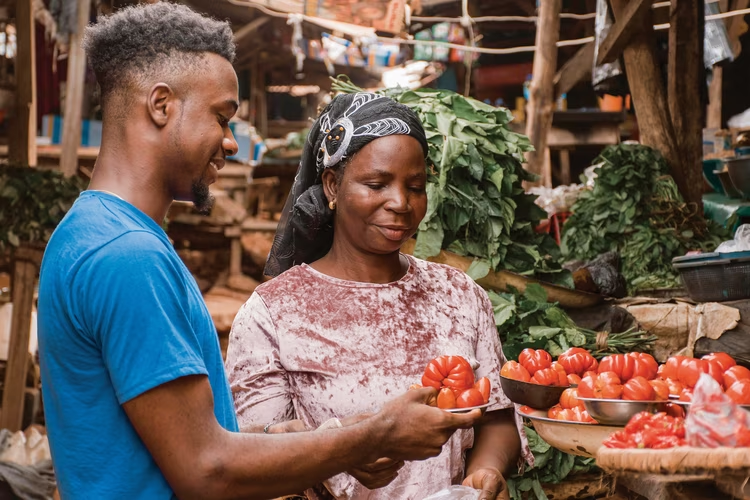
Zambia's Informal Economy
In trying to find a workable definition, the International Growth Centre defined the informal sector thus: “The informal sector, also known as the informal economy, refers to economic activities that are not regulated or taxed by the government. It encompasses businesses and employment arrangements that operate outside of formal, established legal and regulatory frameworks.”
Think neighbourhood kantemba (makeshift shop) owners, street vendors, marketeers, and more recently, online resellers. The hallmark of the informal sector is its ability to offer solutions with greater agility and higher convenience than established organisations. When nearly half of economic output stems from businesses operating outside formal regulatory structures, this represents a phenomenon that demands serious policy attention.
What is the Informal Sector in Zambia?
Any visit to major commerce hubs such as Soweto Market in Lusaka, Chisokone Market in Kitwe, or Main Masala Market in Ndola reveals the real operations of informal enterprise. Thousands of traders earn daily wages through these ecosystems, supporting numerous related industries. Consider the bus driver whose morning trips revolve around ferrying traders and their wares from "ma order" (ordering stock for the day) to their designated stops, or the ever-reliable "ZamCab" system.
ZamCabs—human-powered transport wheelbarrows retrofitted with automobile tyres—can be seen on virtually every city main road, conveying goods from wholesale outlets to small retailers. This trust-based logistics arrangement allows retailers to procure stock and board a minibus to their trading location whilst the ZamCab makes its way to them, providing a head start on daily sales. Products transported range from fresh produce to salaula (second-hand clothing) and everything in between.
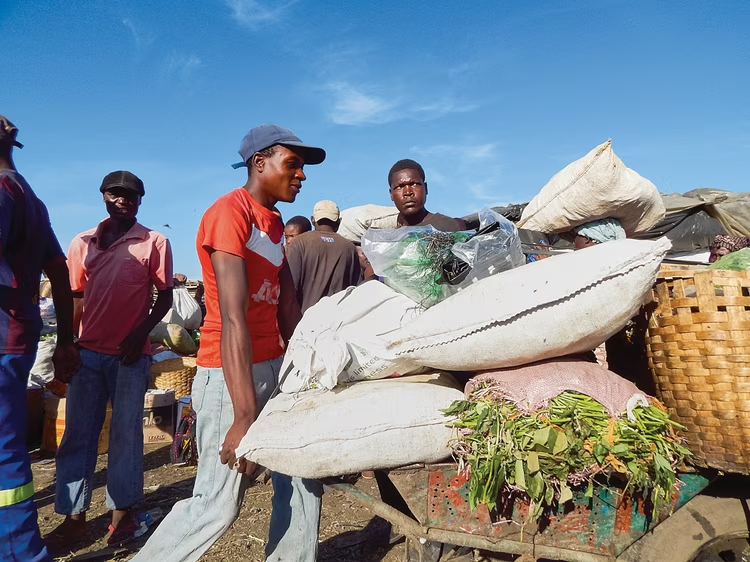
Over the years, these transporters have expanded their fleets and rent wheelbarrows to individuals who pay fixed daily rates. The financial sector has embraced the potential of these commerce hubs, optimising small branches and agents to collect daily takings and provide secure banking for marketeers' hard-earned income.
Zambia's Informal Logistics Network
Despite this economic significance, informal sector players face numerous challenges: difficulties accessing capital and growth loans, limited personal and business insurance options, no access to pensions, and constant conflicts with municipal authorities for those without established premises.
Yet the opportunities are substantial. Entrepreneurship remains accessible in Zambia—identify a gap, conceptualise a solution, and implement it. Growing local supply chains could enhance food security and reduce reliance on imports. The COVID-19 pandemic demonstrated this entrepreneurial resilience, spawning and accelerating online businesses that permanently altered Zambia's commercial landscape.
Until that point, digital marketplaces were uncommon, with most Zambians preferring physical shopping. The convergence of technologies has created viable alternatives to the status quo, with products ranging from food to fashion, cosmetics to electronics, being advertised through Facebook, Instagram, and WhatsApp. Mobile money payment options enabled safe transactions, setting the stage for a significant shift in business practices.
Combined with the delivery app explosion, Zambian customers gained access to convenience and doorstep delivery through established services using everything from walking personnel to flatbed trucks. While the pandemic has passed, digital entrepreneurs now form part of the Zambian economic chain, creating employment opportunities for many young people and exponentially expanding the sector.
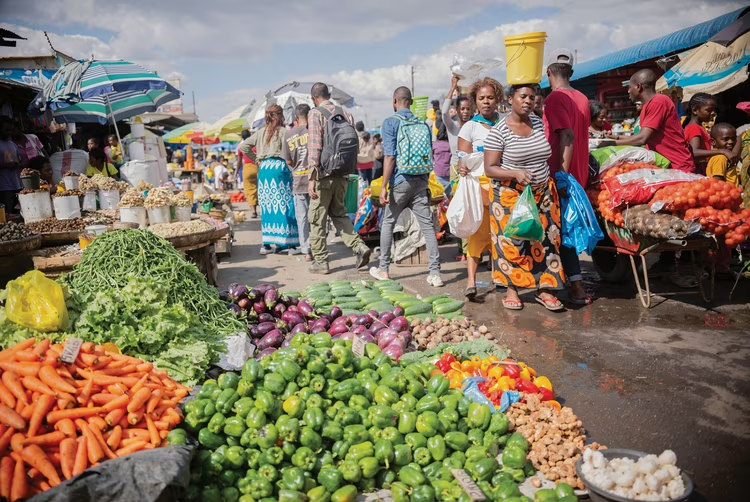
How COVID-19 Transformed Zambia's Digital Business Landscape
The situation isn't entirely bleak for the informal sector. Progress has been made: the National Financial Inclusion Strategy (2017-2022) aimed to bring at least 80% of Zambians into the formal financial system. SME tax thresholds were revised to accommodate micro-enterprises, and the Zambia Revenue Authority enabled informal traders to register and pay simplified taxes through the ZRA TaxOnline platform. However, significant gaps remain in policies providing inclusive social protection, affordable credit access, business training, and regulations that accommodate informal business realities, not forgetting reliable pension schemes.
The bottom line is clear: Zambia's informal economy must move from the sidelines to centre stage. Acknowledging this sector is essential for sustainable economic growth. Policies must transition from well-worded documents to executable programmes based on inclusion, empowerment, and entrepreneur protection. After all, it's the tamanga (small-scale trader) who keeps our economy's wheels turning—quietly, but powerfully.
